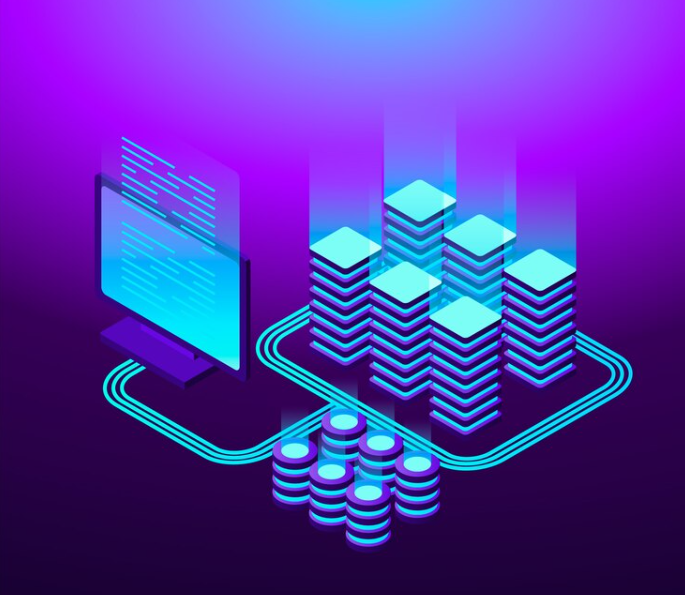In an era where digital transformation is paramount, blockchain technology emerges as a revolutionary force, reshaping industries and redefining traditional business models. However, understanding the dynamics of blockchain frameworks is crucial for leveraging their full potential. This article aims to demystify the complex nature of blockchain frameworks, offering insights into their core components and operational mechanisms.
Choosing the Perfect Blockchain Platform
The journey of blockchain projects from promising proof of concepts to their unfortunate demise has become an all-too-common narrative. An astounding 90% of blockchain initiatives that began with robust proofs of concept have ultimately not succeeded.
Those familiar with blockchain technology aren’t shocked by this trend. Launching a successful decentralized blockchain project requires much more than an innovative concept. It demands a combination of a committed team, specialized knowledge, and the appropriate resources.
Despite having these critical elements – a dedicated team, expertise, and resources – blockchain projects often still fall short, suffering significant failures.
The Need for Blockchain Integration in Your Business Strategy
Blockchain technology has consistently been a hot topic in the tech world since 2010, known for its potential to revolutionize economies with features like transparency and interoperability. Its appeal has captured the attention of many businesses, drawn to its innovative capabilities.
However, there’s a less talked about aspect of this technology – the failure of numerous Blockchain Proof of Concepts (POCs). In the rush to stay current and adopt the latest trends, many businesses have hastily integrated blockchain into their operations without thoroughly assessing its relevance or effectiveness in addressing their specific business needs in both the short and long term.
In this context, it is essential for companies to conduct a thorough analysis of the potential role of blockchain in their initiatives. Such an assessment transcends the hype of adopting blockchain; it’s about a deliberate choice that supports your company’s goals and strategic plans. Opting for the optimal blockchain development platform comes as a subsequent move, one that is predicated on this essential strategic assessment. We aim to offer advice and understanding that will aid in ascertaining if blockchain technology corresponds with your enterprise’s strategic requirements.
The Advantages of Utilizing Blockchain Platforms in Business
For many businesses aspiring to innovate, creating an ideal blockchain framework and network from the ground up often remains an elusive dream. This ambitious goal typically confronts the harsh realities of complexity and expense, making it an unattainable utopia for most.
This challenge has led to the emergence of blockchain platform providers. These providers offer businesses a way to harness existing blockchain software, infrastructure, and services, thus democratizing access to this advanced technology. The growing interest in blockchain-based technologies is fueled by their numerous advantages:
- Consolidating Essential Operations: At its heart, a blockchain operates as a decentralized ledger, collectively maintained by its participants. This technology diligently captures and secures transaction data in an orderly fashion. Blockchain infrastructures act as the critical framework for this system, integrating all vital elements into a unified operational sphere;
- Boosting Operational Effectiveness: From their inception, blockchain infrastructures are crafted to maximize efficiency. Unlike alternative transactional gateways, these platforms enable stakeholders and end-users to interact directly. Such immediate connectivity not only diminishes expenses but also obviates the reliance on middlemen, thereby enhancing the workflow’s fluidity;
- Securing Against Tampering: The foundational security protocols of blockchain platforms are engineered to safeguard against data tampering, making unauthorized alterations virtually unfeasible. This security is instrumental in thwarting the exploitation of data, ensuring its integrity against malicious alterations;
- Enhancing Verifiability: The intrinsic transparency of blockchain infrastructures enhances verifiability, which in turn bolsters the accountability of services powered by blockchain technology. All system participants are privy to the defined roles and duties within the network, fostering mutual accountability and vigilance, particularly when discrepancies arise.
Types of Blockchain Platforms and Their Applications

Blockchain technology encompasses a diverse range of frameworks, each tailored to suit different requirements and objectives. The three primary categories of blockchain development frameworks are public networks, permissioned networks, and private networks, each with its unique characteristics and use cases.
- Open Blockchains: These networks are universally accessible, allowing anyone to contribute in roles such as node management, cryptocurrency trading, or coin mining. They are lauded for their transparency and lack of centralized control but can incur greater operational costs and slower processing times, which might be less appealing for startups needing economical and agile blockchain options;
- Regulated Networks: Balancing accessibility with governance, these platforms are visible to all but maintain regulated participation. They are characterized by their agility and increased capacity, providing a compromise between public accessibility and private efficiency, fitting for enterprises that value a mix of transparency and regulated access;
- Exclusive Networks: Reserved for specific, verified entities, these networks remain closed off from public access. They excel in speed and efficiency, providing near-instantaneous transactions in a secure, managed setting. While they typically do not engage with cryptocurrency and might forgo some decentralized advantages, they are optimal for private transactions requiring the utmost speed and privacy.
Each of these frameworks has distinct use cases, catering to different needs in the blockchain ecosystem. Understanding their individual strengths and limitations is key to making an informed decision about which type of blockchain platform is best suited for a specific application or business requirement. This comparative analysis at the fundamental level can guide businesses and developers in selecting the most appropriate blockchain framework for their specific needs.
| Main Purpose | Blockchain Type |
|---|---|
| Enhancing value exchange among trusted entities | Private |
| Facilitating value exchange among non-trusted parties | Public |
| Enabling the trading of identical value items | Public |
| Allowing the trading of diverse value items | Permissioned |
| Trading of tokenized assets | Public or Permissioned |
| Establishing decentralized entities | Public or Permissioned |
| Forming decentralized agreements | Public or Permissioned |
| Distributing public records | Public |
| Disseminating private records | Public or Permissioned |
| Constructing identity solutions for individuals or assets | Public |
| Distributing property ownership information | Public or Permissioned |
| Conducting audits of records or entire systems | Public or Permissioned |
| Managing digital currency or asset transactions | Public or Permissioned |
| Enhancing the security of systems | Public |
| Developing secure systems for Internet of Things (IoT) applications | Public |
Top Blockchain Development Frameworks
The blockchain arena is replete with diverse frameworks, each offering unique features suited to various development needs. Here’s an overview of the top blockchain development frameworks that are shaping the future of decentralized applications:
- Ethereum: Since its inception in 2015, Ethereum has pioneered the implementation of smart contracts, earning a reputation as the foundational framework for decentralized applications. The platform benefits from its early market entry and has maintained its dominance due to continuous enhancements by its core developers and a vibrant community, exemplified by the evolution of Ethereum 2.0. This positions Ethereum as a premier choice for startups venturing into blockchain-based solutions;
- Hyperledger: This open-source, permissioned blockchain ecosystem is tailored for high-performance distributed ledger technologies (DLT) that facilitate cross-industry collaboration. Comprising six frameworks and seven tools, Hyperledger equips businesses with the necessary infrastructure to adopt blockchain technology at the enterprise level, fostering widespread blockchain adoption across various sectors;
- EOS: EOS operates as a public network platform, enabling smart contract functionality and the development of numerous decentralized applications. Its consensus model is distinguished by a delegated proof of stake mechanism, where token holders vote for block producers from a pool of candidates. This governance model encourages community participation and has sparked discussions comparing the efficiencies of EOS with other platforms like Ethereum;
- R3 Corda: R3 Corda is a collective enterprise blockchain effort involving over 300 companies that have come together to support Corda, an open-source blockchain platform. Specializing in enterprise-level distributed applications across various industries such as healthcare, insurance, and finance, Corda is written in Kotlin and offers seamless integration with existing business infrastructures, thus promoting the development of sophisticated blockchain applications;
- Quorum: A private enterprise variant of Ethereum, Quorum is designed specifically for the financial sector. It enables institutions to execute smart contracts written in Solidity, which can be designated as either private or public. As a permissioned iteration of Ethereum, Quorum is recognized as a pivotal technology among financial institutions and plays a significant role in the Enterprise Blockchain revolution.
Selecting the Best Blockchain Development Platform

The selection of a blockchain development platform for your application is a pivotal decision that hinges on multiple critical considerations. Here’s a broader view of how to navigate this decision-making process:
- Data Privacy Requirements: Blockchain architecture varies significantly, with centralized networks under single-entity control and decentralized networks distributing data across all nodes. For applications handling sensitive personal data, such as identities, documents, or addresses, a private, non-decentralized blockchain may be appropriate. Conversely, if your application’s core ethos is transparency and the elimination of intermediaries, a public blockchain could be more suitable;
- Scalability Considerations: A platform’s ability to handle growing numbers of transactions and participants is a vital aspect of scalability. Blockchains like Ethereum and Bitcoin, while well-established, may not match the transaction speeds of systems like PayPal or Ripple. If your decentralized application (dApp) isn’t transaction-heavy, prioritize factors like quality, cost, and user-friendliness when choosing a platform. However, for dApps that will process a high volume of transactions, it’s important to consider the implications of using side chains for managing load and security, as well as the associated network fees.
Additional Factors to Weigh:
Beyond privacy and scalability, several other factors should influence your choice of a blockchain platform:
- Skill Availability: Ensure that there are ample developers with the expertise to work on your chosen blockchain;
- Community Support: A strong, active community can be a rich resource for troubleshooting and innovation;
- Versatility: Look for platforms that offer multifunctionality to cater to various needs that may arise as your project evolves;
- Security Requirements: Evaluate the security features of the platform to ensure it aligns with the level of security your application necessitates.
Conclusion
In conclusion, the integration of Blockchain technology into a business requires strategic planning and careful consideration. Choosing the right Blockchain platform plays a pivotal role in determining the success of the project. Look into the privacy, scalability, available skill set, community support, and security needs before settling for a platform. With the correct tools and guidance, the power of Blockchain technology can be harnessed effectively to bring about transformative changes and advantages to a business. Understanding its nuances, potential pitfalls, and aligning it with the specific business requirements can pave the way for successful implementation and growth.
FAQ
A variety of blockchain platforms are available to facilitate decentralized applications, with leading options being Hyperledger, Ethereum, EOS, Corda, among others.
Blockchain development is often built on platforms such as Ethereum, Hyperledger, and Corda. Developers engaged in blockchain should be skilled in programming languages like Solidity, C++, and Python, and be knowledgeable about distributed database technologies including NoSQL and RDBMS.
Private Blockchains offer controlled access, keeping data within an approved network of participants for confidentiality. Public Blockchains, on the other hand, are accessible to anyone, allowing public viewing and interaction within the network.